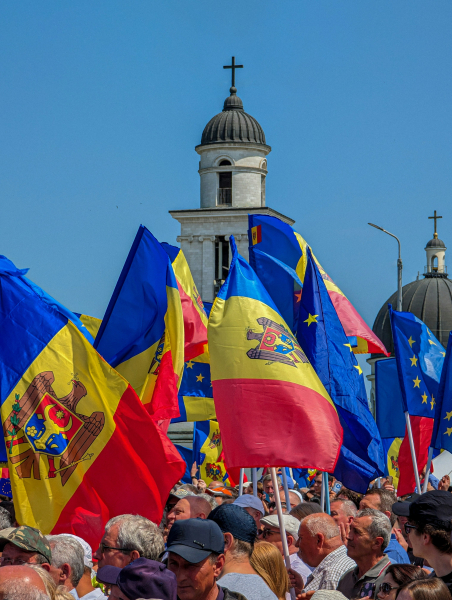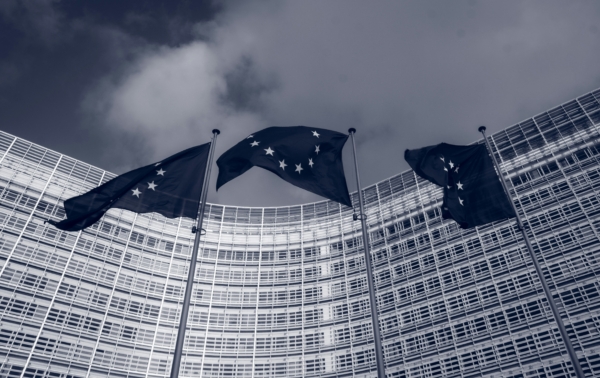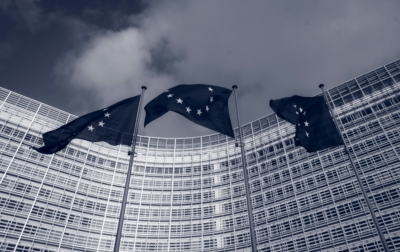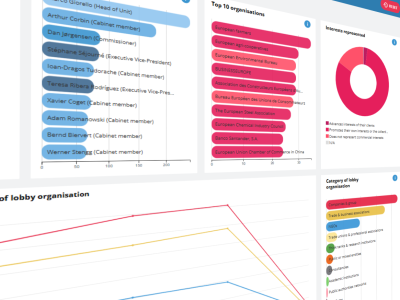EU leaders breathed a sigh of relief on Sunday, as it appeared Moldovan citizens had fended off widespread Russian interference to re-elect its pro-European ruling party, Party of Action and Solidarity, defeating its pro-Russian opposition. Sunday’s elections were existential: a pro-Russian victory would have scuppered Moldova’s chances of joining the EU and expanded the Kremlin’s influence in the EU’s neighbourhood. Moldovan citizens have resoundingly rejected that trajectory.
This victory comes despite unprecedented and sophisticated Russian efforts to destabilise Moldova’s electoral integrity. Independent observers reported that the campaign and voting environment were seriously affected by coordinated hybrid threats, including cyber-attacks, sustained disinformation, illicit financing, and documented allegations that illicit funds were used to finance vote-buying and organised schemes to facilitate fraudulent voting. The Organisation for Security and Cooperation in Europe (OSCE) concluded that while voters were offered a clear choice, the campaign was “marred by cyberattacks, illegal funding and disinformation.” Reports and media coverage also describe credible allegations that illicit money was channelled to buy votes and to organise operations that sought to influence turnout fraudulently. These cross-border problems demand a coordinated EU response.
EU policymakers have realised the fragility of this victory, with European Council President Antonio Costa now pushing for amended rules to the EU’s accession process. Currently, opening chapters required for the EU’s accession process requires unanimity in the European Council, where Hungary’s Viktor Orban wields a veto. This has meant Moldova has not been able to commence the accession process in the first place. With a rule change, both Moldova and Ukraine would be able to make the move to official EU accession countries, enabling work to be undertaken on all of the EU’s accession chapters and their clusters, to align the countries with EU standards.
One of these such clusters is the so-called Fundamentals cluster, which is the first to open and last to close in the process. As its name suggests, this cluster comprises institutions and standards essential to an EU Member State, such as the judiciary, freedom and security, and the functioning of democratic institutions. The election results should push both the EU and Moldova to begin work on the Fundamentals cluster without delay. Given the serious threats to Moldovan democracy, strengthening its democratic institutions, the rule of law and protections for fundamental rights must be prioritised.
At the same time, a strong Fundamentals cluster requires strong civic space and independent media landscape, as meaningful progress on issues such as democracy, rule of law, fundamental rights and anti-corruption can only be achieved through the honest assessment that civil society organisations provide. Policymakers can only bring about successful reforms through concerted work with the support of civil society at both national and EU level.
The EU, for its part, has begun biannual payments to Moldova based on the completion of set benchmarks, such as milestones in judicial or anti-corruption reform. Each disbursement is contingent on a check completed by the European Commission confirming indicators have been met. This directly targets the vulnerabilities exploited by Russia throughout these elections, and provides Moldova with the momentum for further reform.
Congratulating Moldova’s voters is appropriate; but congratulations alone will not secure future elections. Time is of the essence. Attempts on Moldova’s democratic integrity will not cease. These results must not be interpreted as an excuse to maintain the status quo. To the contrary, they demonstrate the will of Moldovan citizens for Moldova to withstand foreign interference and align with EU values. The EU must act now with tangible, measurable support to protect the rule of law and deter foreign interference, including prosecution and financial counter-measures against those who finance vote-buying and organised electoral fraud. Decisive, coordinated EU measures will strengthen Moldova’s institutions and the credibility of EU neighbourhood policy.
Long-term democratic resilience can only be achieved with strong fundamentals. Failure to reform them may lead to disastrous consequences, both for Moldova and the EU.
What the EU institutions must now do
Support civic space at both national and EU level
Scale direct funding to civil society organisations that can provide independent assessments on the current state of issues under the fundamentals cluster, such as democracy, rule of law and anti-corruption.
Immediate technical and forensic assistance
Fund and deploy rapid cyber-forensics teams and election-systems hardening for the Central Election Commission, media outlets and civil society partners to investigate and remediate incidents.
Trace and block illicit funding used to influence voters
Coordinate EU financial intelligence (FIU) efforts to identify, trace and freeze assets linked to vote-buying, transportation of organised voters, or other schemes that facilitate electoral fraud. Condition future assistance on transparent, auditable spending.
Maintain and expand targeted restrictive measures
Keep sanctions and travel restrictions under review and extend them to those credibly linked to financing or organising interference and fraudulent voting schemes.
Support independent media, fact-checking and civic resilience
Scale direct grants to local newsrooms, fact-checking networks and digital literacy campaigns so citizens can better resist disinformation and vote-buying inducements.
Create an EU rapid-response counter-disinformation and financial-integrity cell
Pool threat intelligence across Member States to coordinate public rebuttals and joint financial investigations into cross-border illicit financing.
Transparency International Moldova contact: Lilia Zaharia, Executive Director, Transparency International Moldova: zaharia_lilia@yahoo.com






